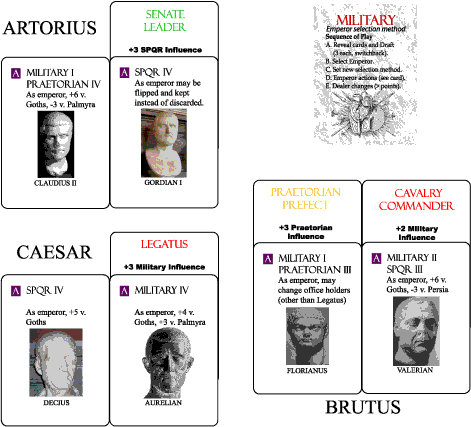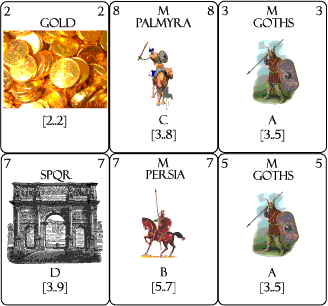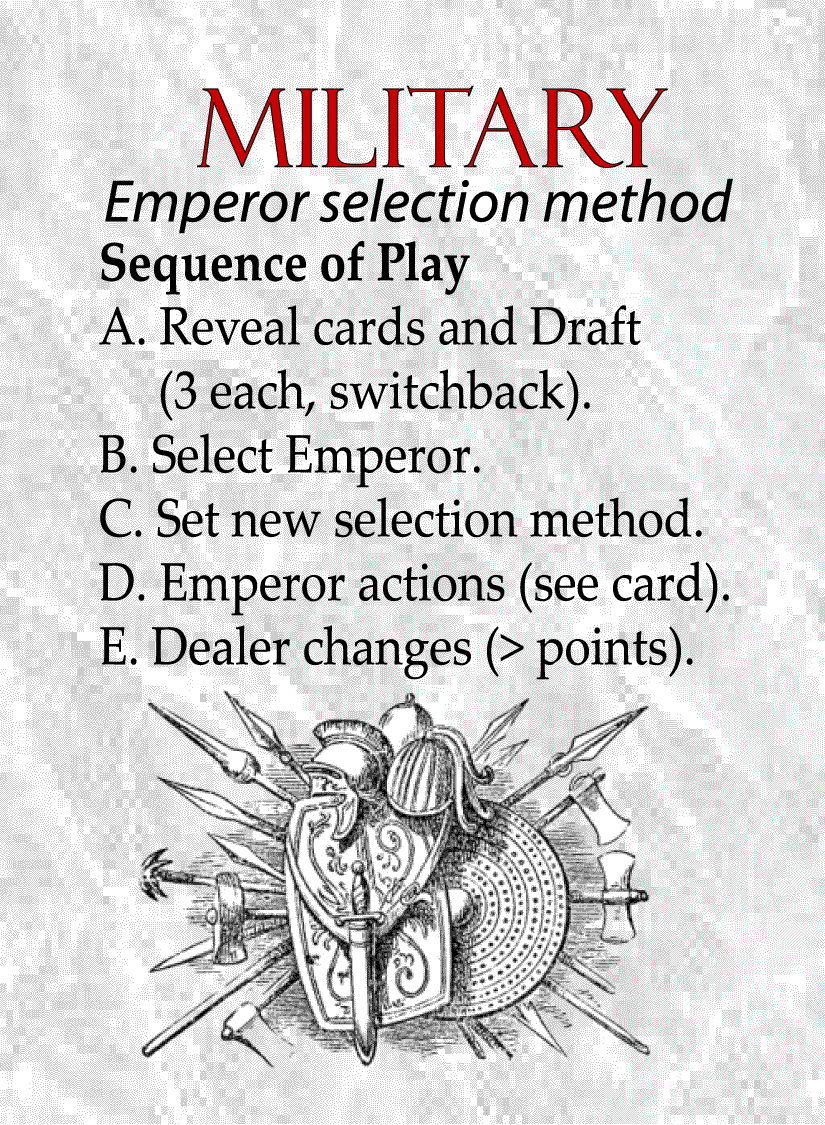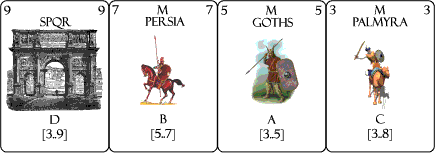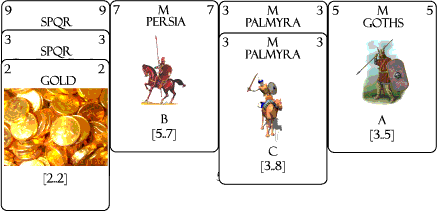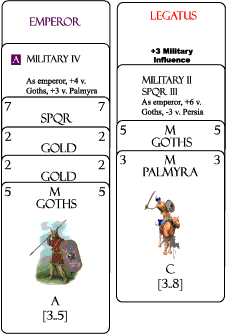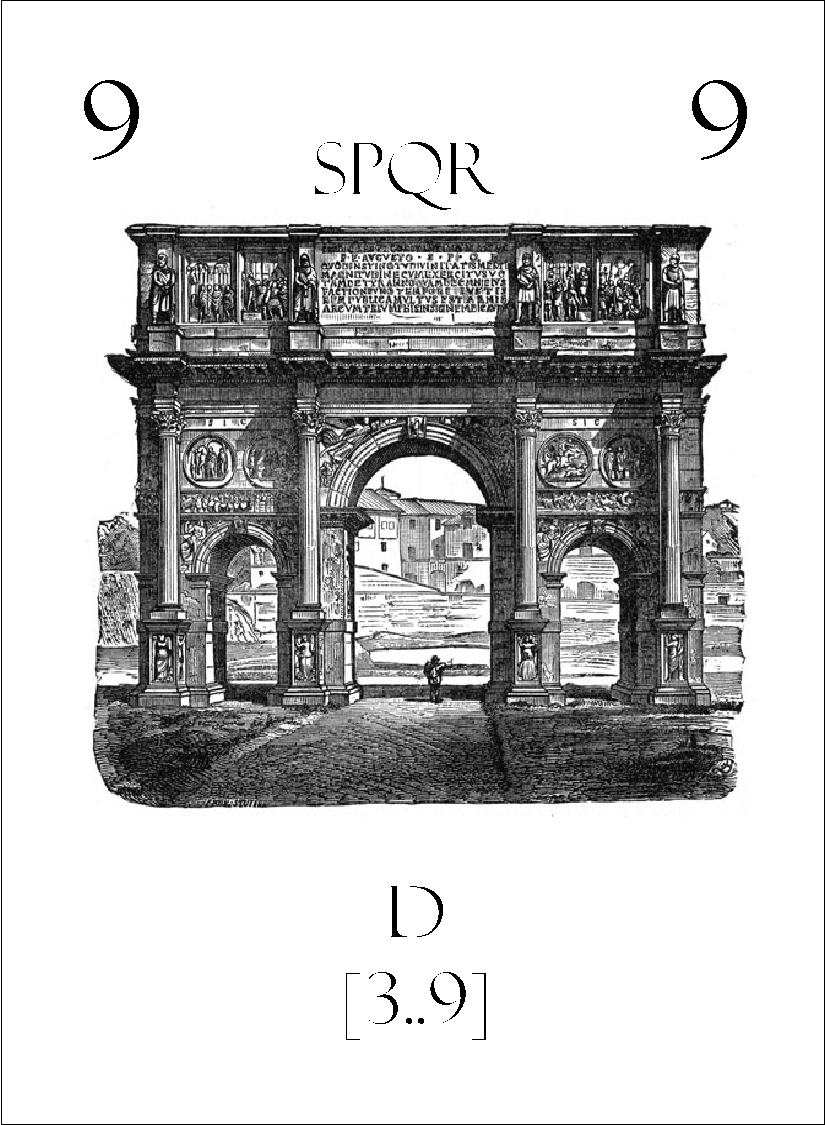
This sample Influence card
has value 9. Type is SPQR.
Range of values for this
type of card is 3-9.
Precedence in case of a
crisis tie is D, i.e. fourth.
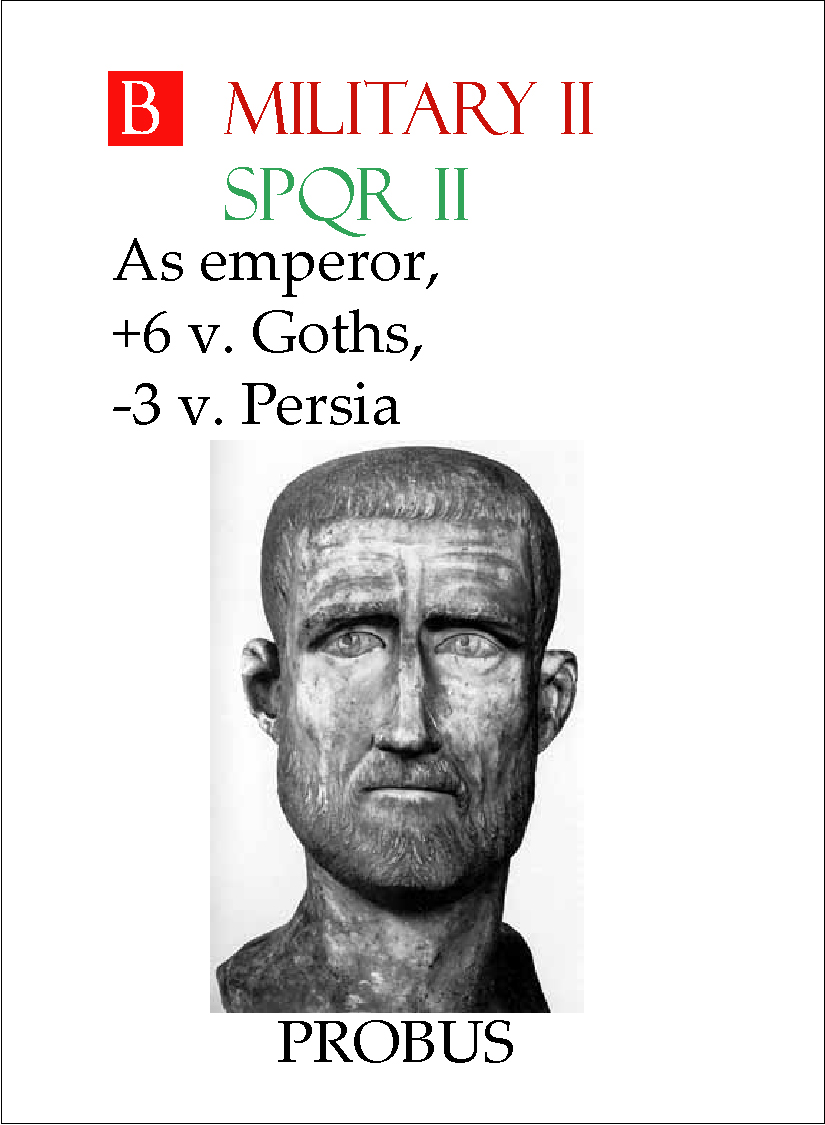
Sample Candidate. Name:
Probus. Military power is
2. SPQR power is also 2.
His special ability is +6
against Goths, but -3
against Persia. The red
"B" means he is on the
back side of the card.
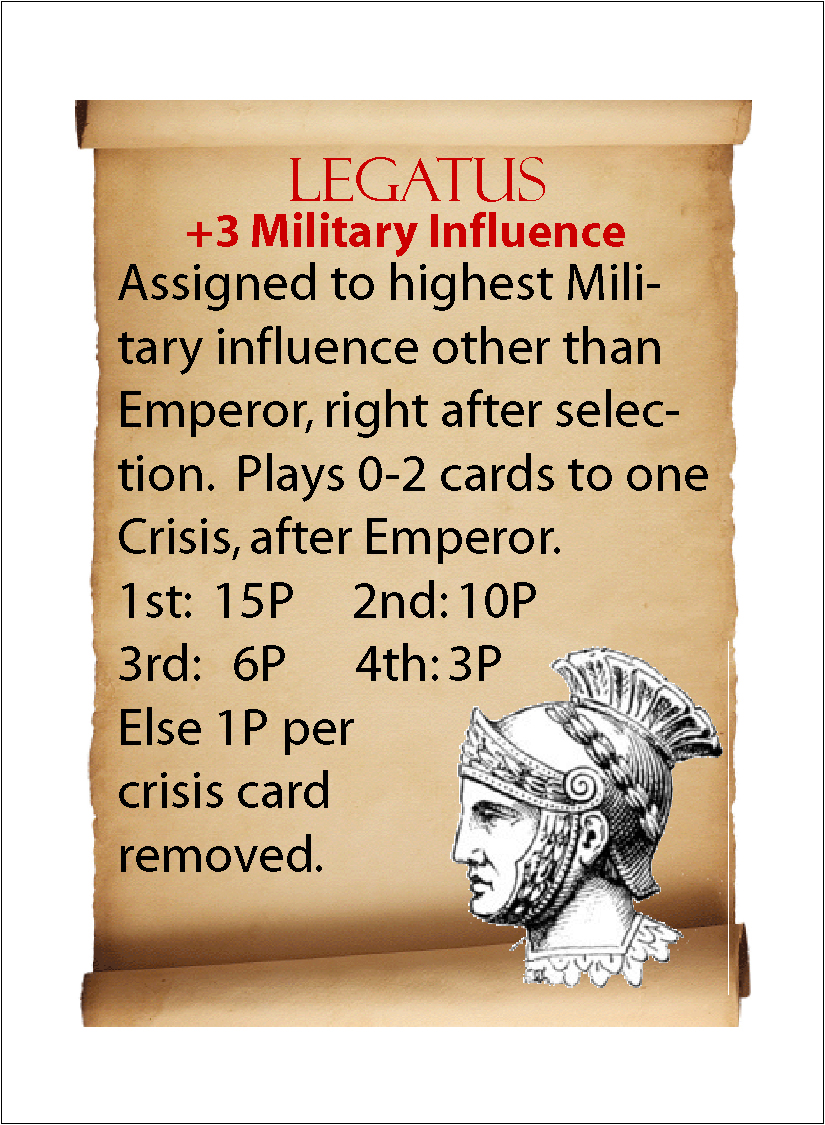
Sample Office. Legatus
provides +3 military
influence. Includes other
helpful information.
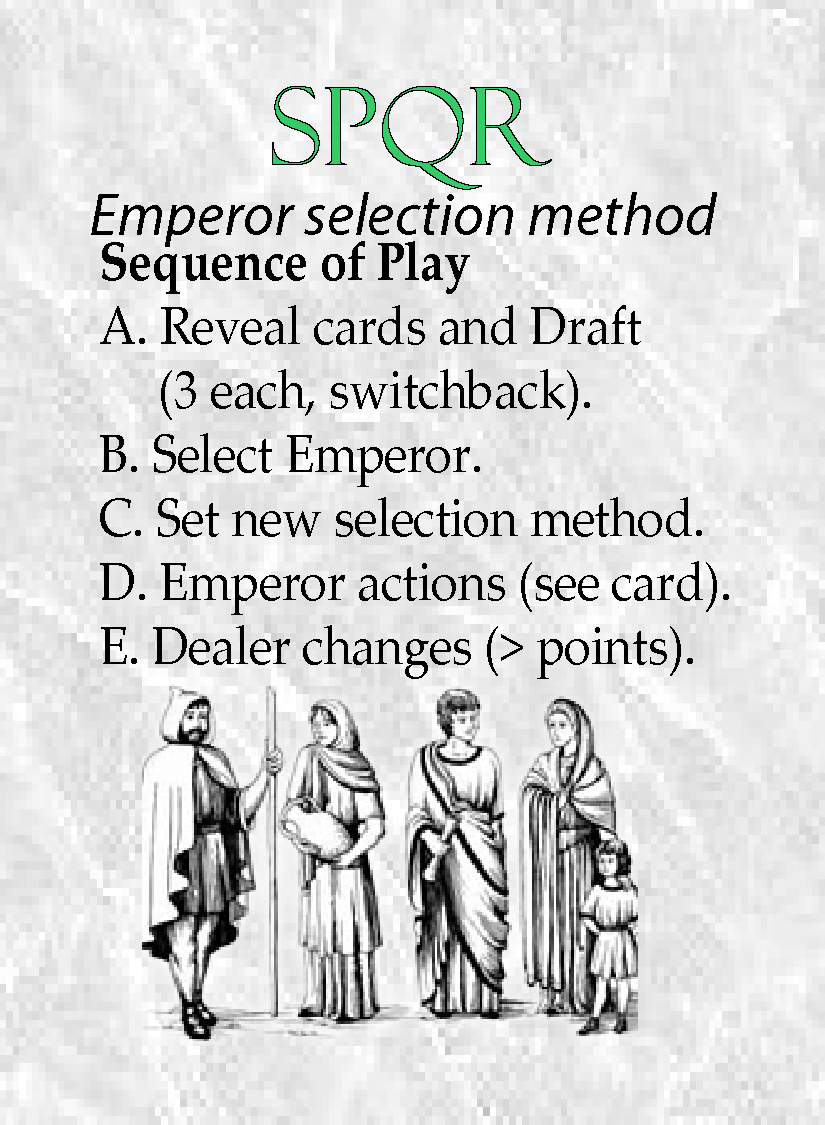
Selection method card.
Indicates the next method
of selecting the emperor.
Includes the Sequence
of Play.
